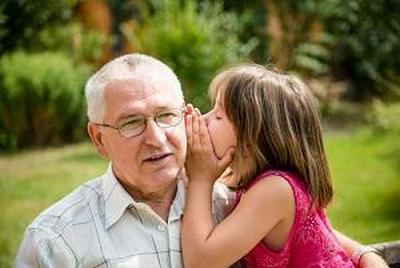Grandparents Can Help Ease Stress of Divorce on Grandchildren
 Most grandparents share special bonds with their grandchildren. Children crave the love, attention, and care that grandparents often provide. Grandparents enjoy being a source of support and love for their grandchildren while not being the primary caregiver. In most cases, grandparents and grandchildren have amazing, loving, lifelong relationships. Watching a grandchild experience a divorce can be extremely difficult. Chances are, your grandchild is going through sadness, pain, and confusion because of their parents’ divorce, and understanding how to help can be challenging. While each divorce is complex and different, there are a few basic strategies you, as a grandparent, can employ to ensure the safety, security, and happiness of your grandchild.
Most grandparents share special bonds with their grandchildren. Children crave the love, attention, and care that grandparents often provide. Grandparents enjoy being a source of support and love for their grandchildren while not being the primary caregiver. In most cases, grandparents and grandchildren have amazing, loving, lifelong relationships. Watching a grandchild experience a divorce can be extremely difficult. Chances are, your grandchild is going through sadness, pain, and confusion because of their parents’ divorce, and understanding how to help can be challenging. While each divorce is complex and different, there are a few basic strategies you, as a grandparent, can employ to ensure the safety, security, and happiness of your grandchild.
Be Ready to Listen
The first key is having a positive relationship with your grandchild prior to the divorce process. Chances are, starting a relationship with your grandchildren post-divorce will be difficult. Already having an established, healthy relationship means your grandchild will trust you and be more likely to open up to you about his or her feelings.
Remember to let the child come to you with issues, and not the other way around. If you have a great relationship, your grandchild should feel comfortable sharing their feelings with you when the time is right for them. Do not push the issue. Wait to hear what fears, worries, or concerns your grandchild has, and then answer those questions in an age-appropriate manner.
Before answering any questions, be sure to discuss possible concerns with the child’s parents first. However appropriate it may seem for you to discuss these things with your grandchild, the parent must first give approval. Simply let the child’s parents know that you are concerned and would like to be there for your grandchild. If the parent gives the go ahead, you are welcome to talk to your grandchild.
Try to Remain Neutral
It is also important to not make any judgments about the child’s parents. Rather, stay unbiased, and then share the child’s opinions with their parents for them to handle, if necessary. If complex issues are involved, do not be afraid to suggest hiring counselors or other professionals to help navigate the situation. They are much more qualified to handle these types of tricky issues with parents and children going through divorce.
If, after visiting with your grandchild, you feel like their parents are not treating the child fairly, schedule a separate time to talk with the child’s parents. Come prepared with suggestions as to where they can find support, and reassure them that you are there to help and that you are just hoping to advocate for your grandchild. Be reasonable, and do not pass judgment or be critical. Hurting your relationship with your grandchild’s parents is never helpful. Finally, be sure to remind the parents of your love and care for your grandchildren. This will make them more likely to take you into consideration when creating post-divorce plans. You do not want to create unnecessary friction with the parents, as this may prevent you from furthering your bond with the child.
If you or a loved one is going through or preparing for a divorce, a qualified Naperville attorney can help. Please contact the Pesce Law Group today at 630-352-2240 for more information.











 630-352-2240
630-352-2240


